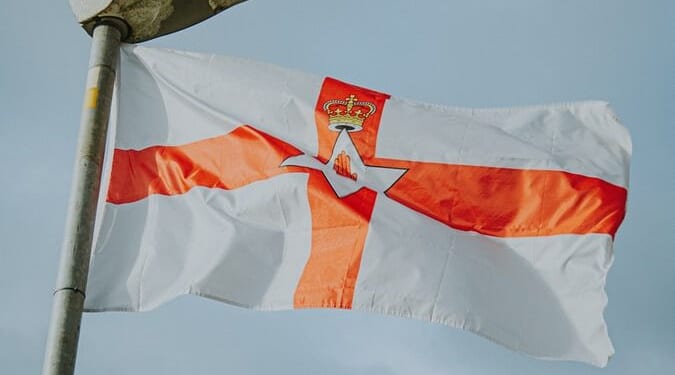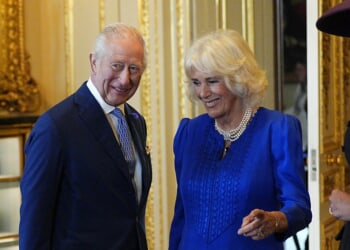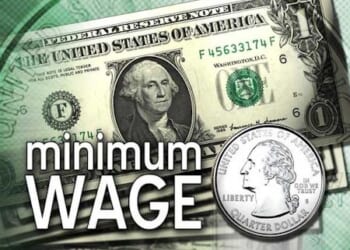Jim Allister KC is the Traditional Unionist Voice (TUV) MP for North Antrim, and a former MEP and MLA.
Since the advent of the Irish Sea border the Government has sought to mitigate its negative economic impact through two provisions: the Movement Assistance Scheme (MAS) and the Trader Support Service (TSS). Neither removes the negative economic impact of the Irish Sea Border but they have helped to shield us from its full destructive effect.
In this context it came as something of a shock when, at the end of June, the Government quietly did away with one of these protections, the Movement Assistance Scheme (MAS). MAS involved the Treasury helping businesses in England and Wales selling agri-food products to Northern Ireland by paying for the veterinary inspections and certifications that the Irish Sea Border has imposed.
The costs of inspections and certificates is not insignificant. As the Government has recently been forced to acknowledge, the inspection of potatoes “carries a minimum charge of £127.60 for the first 30 minutes, with an additional fee of £63.80 for every subsequent 15 minutes. A certificate is issued for each consignment at a cost of £25.52. Where multiple consignments are presented for inspection at the same time, this allows for more efficient use of inspector time and can reduce the cost per consignment”.
As the British Trade Magazine, the Grocer has noted, when dealing with meat and dairy products the cost can be as much as £200 per certificate. Such charges did not apply to the movement of plant and animal products from GB to Northern Ireland before the imposition of the Irish Sea border in 2021 any more than they applied to such movements within GB then or now.
The minister has sought to suggest that the removal of MAS should not concern Northern Ireland because the traders who benefited from it were based in GB. That, however, is nonsense.
Having spoken to a business that buys in potatoes to Northern Ireland from GB, GB businesses are only content to continue shipping potatoes to NI if those buying the potatoes pay for the inspections and certificates that were previously covered by MAS. There is no incentive for the GB businesses to pay for the certificates and inspections because they can sell their produce anywhere in GB without having this cost eat into their profits.
When I challenged the minister to justify her decision to discontinue MAS she said: “Defra, like other Government departments, must prioritise its spending as part of the work to tackle the financial situation this Government inherited. The Department considered evidence on scheme closure from supermarkets and other retailers, producers and trade bodies.” The difficulty with this justification is that it ignores the other points she is required to take into consideration.
First, the minister’s statutory obligations under Section 46 of the Internal Market Act 2020 which requires her “to have special regard to the need to maintain Northern Ireland’s integral place in the United Kingdom’s internal market; the need to respect Northern Ireland’s place as part of the customs territory of the United Kingdom; and the need to facilitate the free flow of goods between Great Britain and Northern Ireland …”
Of course, in the aftermath of the Irish Sea border which negates the UK Internal Market, the UK Internal Market has become something of a legal fiction, but the presence of the Movement Assistance Scheme helped to give aspects of the effect of a UK Internal Market for Goods reality by protecting the effected businesses from the full force of the impact of the Irish Sea border. In this context, once the Movement Assistance Scheme was in place, removing it could not but have the effect of giving fuller expression to the Irish Sea Border and the negation of Northern Ireland’s place in the UK Internal Market in violation of Section 46.
Second, both the UK Government and EU determined that if the operation of the border moved outside the parameters set by the Windsor Framework Article 16 safeguards, that its operation would move outside the parameters deemed by the treaty to be safe such that this afforded the basis for triggering its derogation mechanism. The wording of Article 16 makes it plain that the safeguards are engaged in the context of trade diversion which I pointed out was taking place, notwithstanding the amendments made by the Windsor Framework, in March.
Rather than “fully and faithfully implementing” the treaty, however, they have acted recklessly in not only ignoring the safeguards but also in kicking away one of the two props that helped to mitigate the economically destructive consequences of the Irish Sea border which cannot but promote further trade diversion. Indeed, businesses that have used MAS have already intimated to me that they cannot meet the costs of the inspections and certificates without it making what was previously economically worthwhile untenable and that, unless MAS is restored, they will soon have to stop buying from GB, provoking yet further trade diversion.
In looking at the fate of MAS, however, we must not lose sight of its implications for the broader situation that we face. As noted in the introduction, MAS was one of two mechanisms introduced to mitigate the impact of the border, the other being the Trader Support Service (TSS).
If MAS is dispensable then why not TSS? The savings to be made by its discontinuation would be far, far greater for the Treasury than those associated with MAS. This clearly is not going to happen any time soon because the government is negotiating a new TSS contract. However, in the context of the removal of the Movement Assistance Scheme does anyone seriously believe that the Government will be funding TSS ten years from now? Action is now required.
We must, of course, fight the removal of MAS, holding the Government to its obligations under Section 46 and Article 16. Its removal is the result of a calculated and callous breach of faith, an act of abandonment that cannot go unchallenged. However, as these MAS developments confront us with the fragility surrounding provisions designed to mitigate the effect of an ongoing border, we must face up to the need to renew our determination to secure the real solution, the removal of the Irish Sea border.
Mutual Enforcement, proposed by my EU Withdrawal Bill, would remove the Irish Sea Border, while providing a means of protecting the integrity of the UK Internal Market for Goods and the EU Internal Market for Goods without requiring a hard border across the island of Ireland.
It would facilitate the re-enfranchisement of the 1.9 million UK citizens who have been disenfranchised by the imposition of the sea border, and it would remove all the problems flowing from the fettering of goods movements from GB to NI and the need for both the Movement Assistance Scheme and the Trader Support Service.
Nothing less than this will deal with the presenting difficulty.

















